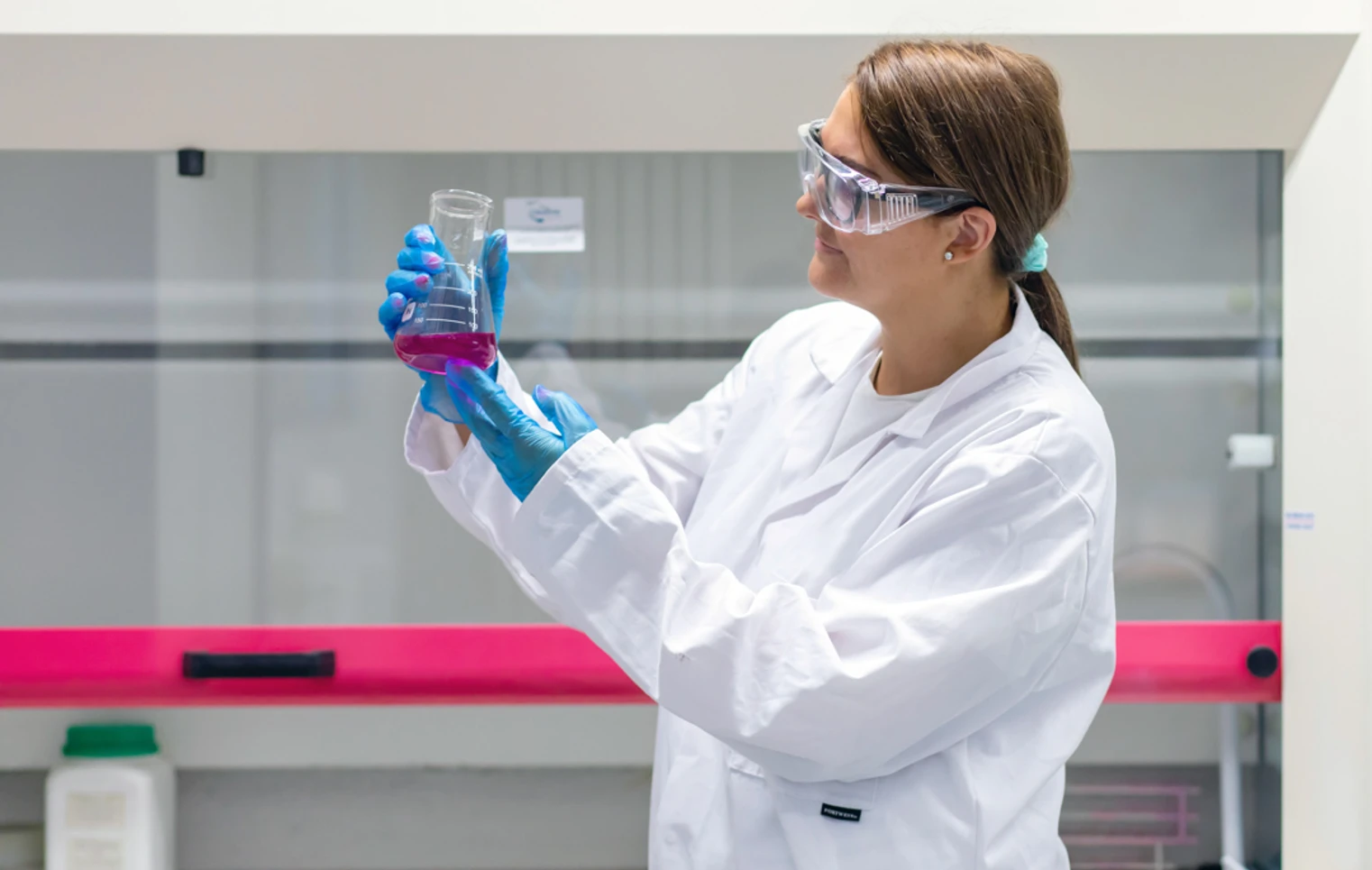
Course overview
Build on your scientific curiosity and strengthen your skills across Biology, Chemistry, and Physics.
This one-year, full-time course is designed for learners who already have some basic science knowledge and want to progress to the next stage of their education. You’ll complete National 5-level units across the main scientific disciplines, developing both theoretical understanding and hands-on practical skills.
The course includes Biology, Chemistry, Physics, Mathematics, and Communication, helping you identify which areas of science most excite you for future study. You’ll also work on investigation skills, research, and report writing - all essential preparation for further science or engineering courses.
Supportive teaching, regular feedback, and a friendly environment will help you gain confidence as you move toward NQ Steps into Science (Level 6) or other higher-level study.
This course is ideal for:
- Learners who’ve completed NQ Steps into Science (Level 4) or have National 4 qualifications.
- Adults or school-leavers with an interest in applied science and a desire to continue to higher levels.
- Students who enjoy experiments, problem-solving, and scientific investigation.
- Anyone looking for a clear pathway toward HNC/HND Science or future university entry.
What you will learn
You’ll study key topics designed to strengthen your knowledge and laboratory skills:
- Biology – cells, body systems, and environmental interactions.
- Chemistry – materials, reactions, and analytical techniques.
- Physics – forces, motion, and energy in everyday applications.
- Mathematics – numerical methods, data handling, and measurement.
- Computing – digital tools for data collection and analysis.
- Communication & Study Skills – scientific writing, presentation, and teamwork.
- Investigation Skills – designing and carrying out experiments safely and effectively.
You’ll develop both the technical and personal skills needed for success in higher-level scientific study.
Entry requirements
✅ Minimum of Four National 4 qualifications (or equivalent), at grade C, in Maths, English, Biology and Chemistry.
✅ You must have a genuine interest in science and enthusiasm for learning.
✅ Entry is competitive, based on a review of your application and personal statement.
Personal Statement Guidance
Your personal statement should:
- Explain why you want to study science and which subjects interest you most.
- Describe any school, work, or personal experiences that show curiosity or ability in science.
- Highlight your skills - organisation, communication, teamwork, and motivation - with examples.
A detailed, well-written personal statement increases your chance of being shortlisted for interview (in person or online).
Additional Information
When you start the course, your academic skills will be reviewed to confirm that you’re on the right programme. If extra support is needed, staff may suggest an alternative route to help you achieve success.
ℹ️ For this course, if English is not your first language
- you need to have SQA ESOL National 5 (or equivalent, click here to see equivalent qualifications)
- If you do not have a formal ESOL qualification but your language skills meet this level, you should apply for your course and then contact our Admissions team to organise an internal language assessment here at the College.
Career Opportunities
Although this course focuses on preparation for further study, it begins to build the skills valued in:
🔬 Laboratory and Technical Support
🏥 Healthcare and Pharmacy Assistant roles
⚙️ Engineering and Manufacturing Support
🌿 Environmental and Conservation Work
💡 STEM Apprenticeships and Trainee positions
You’ll strengthen your understanding of how science applies to real workplaces - from labs and hospitals to energy and environmental industries.
Future prospects
After successfully completing this course, you may progress to:
- NQ Steps into Science (Level 6)
- NQ Applied Science or NQ Science for Health Care
- Other NQ, HNC, or vocational programmes in related STEM fields
Many learners continue to HNC Science at Glasgow Kelvin College, and then move on to university or technical employment in the growing science and engineering sectors.




